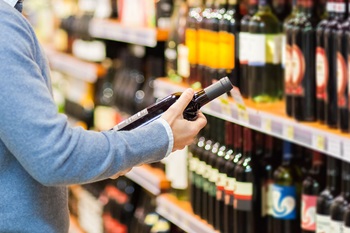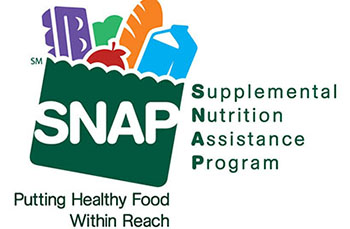By Elizabeth Tansing, Vice President, State Government Relations, FMI
 One of the simple pleasures in life is enjoying a glass of your favorite wine with a meal at home. Unfortunately, for millions of Americans living in one of 11 states across the country, the convenient act of picking up a bottle of wine at the grocery store during their weekly grocery trip is impossible. That’s because these states currently don’t allow grocery stores to sell wine.
One of the simple pleasures in life is enjoying a glass of your favorite wine with a meal at home. Unfortunately, for millions of Americans living in one of 11 states across the country, the convenient act of picking up a bottle of wine at the grocery store during their weekly grocery trip is impossible. That’s because these states currently don’t allow grocery stores to sell wine.
While there are different reasons and histories that have resulted in certain states prohibiting wine sales in grocery stores, one of the main arguments I often hear in support of this policy is that allowing these products to be sold in supermarkets would directly harm liquor stores. However, as with any public policy, it’s important to look at what the facts say to determine whether such a position is justified.
Recently, FMI commissioned and published a study titled “Assessing the Impact of Wine Sale Reform: A Case Study of Tennessee” that explores what happens when grocery stores are allowed to sell wine. In particular, the study examines the impact on liquor stores and on wine sales tax volume. Through the creation of a “synthetic” Tennessee, the report looks at what would have happened in the state if wine sales were not permitted and compares those results with real-world outcomes since 2016. The report also compares present-day Tennessee with other states that do not allow wine sales in grocery stores.
The good news? The research found that Tennessee’s expansion of wine sales to grocery and convenience stores did not result in liquor store closures. The report also demonstrated that wine sales tax per capita in Tennessee increased in 2017 after wine sales were permitted, and then stabilized at this higher level going forward − a trend not observed in other states where wine sales continue to be banned.
Consumers consistently tell pollsters they prefer to purchase wine with their food. Balanced against this clear consumer preference is the fear among opponents of the policy that expansion of wine sales to food stores will result in closures of existing liquor stores. We now have proof that allowing wine sales in grocery stores does not lead to liquor store closures as some would suggest, and in fact has positive benefits for the state in increased tax revenues while at the same time giving consumers greater options for making their wine purchases.


 Industry Topics address your specific area of expertise with resources, reports, events and more.
Industry Topics address your specific area of expertise with resources, reports, events and more.
 Our Research covers consumer behavior and retail operation benchmarks so you can make informed business decisions.
Our Research covers consumer behavior and retail operation benchmarks so you can make informed business decisions.
 Events and Education including online and in-person help you advance your food retail career.
Events and Education including online and in-person help you advance your food retail career.
 Food Safety training, resources and guidance that help you create a company food safety culture.
Food Safety training, resources and guidance that help you create a company food safety culture.
 Government Affairs work — federal and state — on the latest food industry policy, regulatory and legislative issues.
Government Affairs work — federal and state — on the latest food industry policy, regulatory and legislative issues.
 Get Involved. From industry awards to newsletters and committees, these resources help you take advantage of your membership.
Get Involved. From industry awards to newsletters and committees, these resources help you take advantage of your membership.
 Best practices, guidance documents, infographics, signage and more for the food industry on the COVID-19 pandemic.
Best practices, guidance documents, infographics, signage and more for the food industry on the COVID-19 pandemic.
